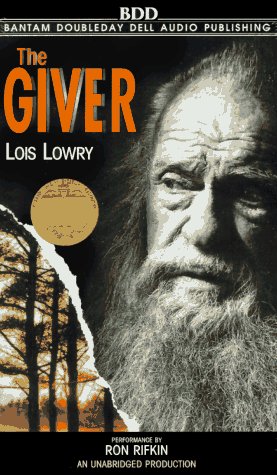
A gripping story that draws readers into an exceptional world with unnervingly close echoes of our own, the Giver delineated a community in which every individual and his or her experience was precisely the same. Competition was eliminated in favor of a community where everyone worked for the common good– conflict, fear and pain were nonexistent. With a Utopian-like atmosphere, such world offered no choices to its inhabitants and even assigned them with specific roles in the community– roles to which they were cosigned for a lifetime.
Jonas, the main protagonist, was apprehensive about the upcoming Ceremony of Twelve wherein he would be given his official assignment as a new adult member of the community. He did not really have a career preference though he enjoyed the freedom of choice that volunteer hours provided. He wasn’t really prepared, however, when he was given the highly honored assignment as the Receiver of Memory. This was because such role would center on taking the collective memory of his society– people’s past and present. He knew it was not an easy task.
When he began training with The Giver, a man he grew to love, he became extremely sensitive to beauty, pleasure and suffering. He became deeply affectionate of his family and The Giver. Also, he learned to be intensely passionate about his acquired beliefs and feelings.
Jonas’ inherent concern for others and desire for justice made him yearn to advocate changes in the community for purposes of awakening other people to the richness of life and putting an end to the casual cruelty that was practiced in the community. At twelve years old, the main character was too young to control the powerful emotions that his training unleashed. It was indeed of great aid that The Giver, with all the guidance and wisdom he could muster, helped Jonas keep all of his new experiences in perspective.
The Giver, the novel’s personage, was responsible for preserving memories using the wisdom they gave him to make decisions for the community. It is distressing that he was forbidden to share his knowledge and pain to anyone else, thus transformed him into a distinctively quiet, deliberate person. He then realized that he couldn’t change the community, though it badly needed it. This irrefutable fact describes what exactly is wrong with our society at present.
Reading the above accounts would make clear that the themes interweaving the various chapters of the novel were the importance of memory, the relationship between the pain and pleasure and the acknowledgement of individual differences.
Giving up the memories of their experiences in the society did not only allow the people to forget all the pain that had been suffered throughout human history, it also prevented suffering. However, the Committee of Elders knew that memory is essential and recognized its practical application— if you do not remember your errors, you might repeat them. When Jonas underwent training, he learned that there might be no pain without memory, yet happiness was also impossible to exist.
Related to the theme of memory is the idea that there can be no pleasure. No matter how delightful an experience was, you cannot value the pleasure it gave you unless you have some memory of a time when you suffered.
As implied, the novel also encouraged readers to celebrate differences instead of pretending not to notice such disparity. People in Jonas’ society ignored his unusual eyes and strange abilities out of politeness, but those unusual qualities ended up bringing lasting positive change to the community.
In this Newberry Award winning science fiction novel, author Lois Lowry managed to make readers cling to contemplation and intrigued them with The Giver’s deliberately ambiguous ending with allegorical connotations, leaving them with the decision of what they wanted to believe. It made us realize that sometimes, books don’t require a set ending to be appreciated. The author obviously did that on purpose: to leave the readers’ mind in an oblivious wonder. How she came up with the idea of using a very unusual society as setting proved how boundless her imagination was– a trait seemingly lacking to some science fiction writers.
A story of an almost perfect future world which turned out to be a hostile one and with numerous societal and ethical values incorporated into 179 pages seemed unimaginable, but Lois Lowry just went beyond imagination and proved it possible.
Appropriately plotted, The Giver certainly is thought provoking and riveting– an enthralling probe on the confusing meaning of life.
by Anjenelle Amante
 WOWBatangas.com Your Source of Great News and Stories from the Province of Batangas, Philippines
WOWBatangas.com Your Source of Great News and Stories from the Province of Batangas, Philippines



